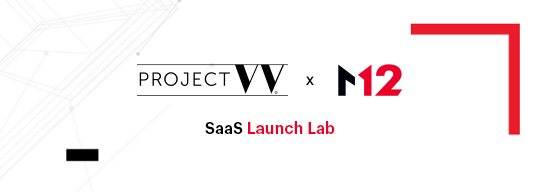In This Issue:
- Closing the Racial Divide
- Q&A with Tania Kottoor
- Announcing the 2021 SaaS Launch Lab Cohort
- Opportunities
Closing the Racial Divide
Addressing Economic Privilege in the Startup Space

Before White Fragility, before How to be an Antiracist, I read an article posted in early 2017 by Jason Ford, a white male entrepreneur. More than anything else I'd read up to that point, Ford debunked the myth that entrepreneurism is the great equalizer. The myth that regardless of race, education, or personal history, anyone can share in the startup dream of two white guys with a dog in a garage in Silicon Valley who have an idea, build a technology and get rich. That just doesn't happen. More often than not, entrepreneurialism is a path to success only for those who start their journey from a position of economic privilege.
Jason Ford's story reveals the advantages so many of us enjoy because of intergenerational wealth. In the June 2020 issue of this newsletter, Jill Johnson, CEO and co-founder of the Institute for Entrepreneurial Leadership, wrote about the gaping—and growing—wealth gap between Black and white communities. The wealth Jill writes about is not billionaire-style wealth. It's solidly middle- and upper-middle class wealth. The kind of intergenerational wealth that enabled Ford to graduate from college debt-free, that provided the seed capital to start his business, that gave him access to neighbors and family friends who could open doors and make connections and that afforded the financial safety net to quit his job and focus full-time on his startup, knowing that if he failed, he could fall back on his family for support.
Roughly 1% of venture capital is invested in Black-owned businesses. While the lack of venture capital invested in Black founders is widely known, very little focus has been placed on the correlation between this enormous racial divide in VC funding and the intergenerational wealth gap. Cornerstone Partners, a leading UK angel network, recently published a report on VC-backed companies in the UK that sheds light on the correlation between socioeconomic status and success in raising venture capital. Among Cornerstone's findings:
- ❖ Three-quarters of founders came from advantaged socioeconomic backgrounds with one or more parents working in professional or managerial jobs. On the other hand, only 2% of founders came from families whose main household income was from casual work or welfare entitlements.
- ❖ More than 80% of all founders reported starting their businesses while "living comfortably."
- ❖ An overwhelming majority of founders had the benefit of a good education. More than 80% of all founding teams had university degrees, and a majority of founders graduated from elite universities. One in five founders had a PhD. In contrast, fewer than 11% of founders had no university education.
There is ample reason to conclude that the same correlation exists in the U.S., with factors such as where you went to school, where you live, who you know, and whether you have the financial safety net to spend full-time on your startup either paving the way to or impeding a founder's access to capital.
- ❖ According to Crunchbase, 37% of the founders who raised more than $1 million in venture capital since January 2020 went to Stanford, MIT or Berkeley. And without family wealth, you are far less likely to attend one of those colleges. As reported in a National Bureau of Economic Research paper, a student whose family is in the top 1% of the income distribution is 77 times more likely to attend an Ivy-Plus college (the eight Ivy League schools plus University of Chicago, Stanford, MIT, and Duke) than if her family is in the bottom 20% of the income distribution.
- ❖ Research conducted several years ago with respect to New York-based tech companies revealed that among the top-performing startups, one-third of the founders had been mentored by a successful businessperson, underscoring the importance of access to networks of influence. And a recent article in Chicago Booth Review concludes that a network—particularly an alumni network—is "an entrepreneur's best asset."
- ❖ Another Crunchbase study noted that in 2020, 73.1% of venture capital was invested in the states of California, New York and Massachusetts, among the wealthiest states in the country.
- ❖ A report published by Black Women Talk Tech in late 2020 stated that 91% of the 671 Black female founders surveyed retained their "day jobs" because of the inability to support themselves solely through their startup ventures.
A good education and robust alumni network (particularly from an elite school), the financial safety net that allows a founder to quit her job, and the introductions that well-connected family and friends can provide are a function of economic privilege that derives from intergenerational wealth. Data from the Federal Reserve Board's 2019 survey of consumer finances shows that the median wealth of white families is $188,200 compared to $24,100 for Black families and $36,100 for Hispanic families. Closing the staggering wealth gap in this country in any meaningful way will require aggressive governmental intervention and extraordinary political will. While most of us aren't in a position to take that kind of action, we can do our part to create equity in the startup ecosystem by working to redistribute the benefits of economic privilege.
When we founded Project W over six years ago, we talked about leveling the playing field for female founders. Since then, we have learned that leveling the playing field is not enough, especially for female founders of color. Even the most brilliant and intrepid Black female entrepreneur can't bootstrap her way out of all the consequences of the intergenerational wealth gap. For most Black and Latinx female founders, the roadmap to building a successful business starts miles behind the starting point for other founders.
That is why last fall we made a commitment to purposefully and meaningfully raise up Black and Latinx female founders by creating access to expertise, unlocking networks of influence, making connections to resources, and facilitating pairings with mentors and sponsors, all of which position a founder to successfully raise capital.
Since then, here's what we've done:
- ❖ Doubled-down on our support of three essential organizations that elevate Black and Latinx female founders: Black Women Talk Tech, digitalundivided and Black & Brown Founders.
- ❖ Collaborated with our partners to provide programming that showcases Black and Latinx female founders, including the Building the Future series of four Dolphin Tank pitch events and the Supply + Demand event series to help founders of CPG companies navigate supply chain issues.
- ❖ Launched the Tech Equity Hub with a cohort of ten Black and Latinx female founders of pre-seed stage tech companies who will spend 12 weeks with experts, investors and mentors, all committed to help those founders build successful companies.
And here are some of the ways anyone can join us in our commitment:
Meet. Get connected with one or more of the terrific organizations that support founders of color. Many of them have demo days and showcases where you can hear from founders, learn about their businesses, and meet them via Zoom or (soon) in-person. In addition to Black Women Talk Tech, digitalundivided and Black & Brown Founders mentioned above, check out Next Wave Impact and Morgan Stanley Multicultural Innovation Lab. And don't miss our virtual Demo Showcase in late September featuring the ten founders in our Tech Equity Hub.
Mentor. Volunteer to mentor a founder. Volunteer through the Institute for Entrepreneurial Leadership. Or simply offer to mentor a founder you've met through a demo day or meetup.
Invest. Put your money to work to help a founder build her business. If you are or want to be an angel investor, learn about investment opportunities in companies founded by Black and Latinx women. We encourage you to do your own research and search for opportunities that work best for you, but here are some suggestions to get you started: Backstage Crowd facilitates investments on a company-by-company basis alongside Arlan Hamilton and Backstage Capital. Portfolia sponsors multiple micro-funds that have lower minimums for limited partners than most venture funds. And even non-accredited investors can invest through crowdfunding platforms like Republic, make a contribution on a rewards-based crowdfunding platform like IFundWomen, or make a non-equity contribution to become an activator in the SheEO perpetual loan fund.
Be part of the Project W mission and help us open doors and provide opportunities for Black and Latinx female founders who are building the next generation of great companies.
Lynn Loacker, Founder, Project W
Q&A with Tania Kottoor

Tania Kottoor is the co-founder of WESTxEAST, a DTC size-inclusive fashion brand that provides a digital design service for cultural events. Tania and her co-founder, Liya Thachil, both first generation Indian-Americans, founded the company in an effort to create a cutting edge service that provides sensibly priced, perfectly tailored, and consciously produced traditional clothing delivered straight to their client's doorsteps.
Q: WESTxEAST offers a unique virtual design service for modern South Asian-Americans looking for traditional outfits. Can you tell us more about why you were inspired to create the company and the problem you were hoping to solve?
A: Having a dual identity of being American and Indian, I faced three unsatisfactory options when shopping for traditional garments to wear for special occasions:
- Exhausting trip to South Asia – Shoppers spend time and money flying across the globe, only to find that local vendors have limited styles and selection.
- Local Boutiques with outdated stock – While these businesses are more accessible, they often provide out-of-fashion stocks at high markups.
- Untrustworthy fast-fashion websites – Though they offer a wide selection and convenience, customers have no guarantee they will receive the same outfits they saw on screen.
I realized that all my family and friends were dealing with the same pain points and that's how the idea for WESTxEAST was born. My co-founder and I started our company to offer a superior solution for modern South Asian-Americans. With our virtual design service, clients can have their outfits created according to their exact specifications and delivered straight to their door–all while comfortably lounging on their couch.
Q: Your company utilizes a team of artisans and tailors in India to produce unique and tailored garments for your clients. In light of India's worsening economic and public health crises due to the COVID pandemic, can you tell us how WESTxEAST is navigating resulting supply chain issues and continuing to support local workers?
A: Preserving Indian craftsmanship is incredibly important to our brand. All of our garments are made entirely from scratch by artisans living in India who have passed down their skillset from generation to generation. We paused for three months during the height of the pandemic and then asked our dyers, pattern makers, tailors and embroiderers to work from home so we could continue delivering client orders. It was a makeshift operation but we made it work. We also recently launched a crowdfunding campaign to help sustain our production team in India and thus support the livelihoods of textile artisans who are struggling amid India's COVID crisis. That will provide the resources to expand our production workspace in India by hiring a full-time staff of craftspeople.
Q: We have seen a dramatic shift in consumer trends since the COVID-19 crisis, with the retail industry and brick and mortar stores being particularly hard hit as consumers are more reluctant to shop in person. How has WESTxEAST handled changes in client needs due to the pandemic?
A: Our design process is completely virtual, meaning it can be done from the client's couch. Our clients receive a Digital Design Book that includes hand-dyed swatches, trims and 2-D sketches. After the client reviews the Digital Design Book, we have a Virtual Design meeting via Zoom to finalize designs before we start production. The pandemic demonstrated to consumers and retail brands alike the need and convenience of virtual shopping experiences. WESTxEAST started our virtual service five years ago and we quickly realized that we were ahead of the game. However, we are striving to become even more digitized by investing in an AI powered virtual tailor, 3D rendering and a smart factory. Our hope is that the addition of these technology components will help us digitize the remote shopping experience even further.
Q: You and your co-founder are both first-generation Indian-Americans who founded your company in an effort to bridge the geographic divide and provide culturally authentic products to South Asians who immigrated to America. Can you tell a little about how your background informed your founder journey and helped you find success?
A: The core principle of our business is providing a service for South Asians like us who are a product of two cultures: American and South Asian. We strive to preserve the traditions passed down to us by our immigrant parents, much of which lies within clothing. One of the biggest struggles for the diaspora is being able to source high quality and made-to-measure garments for religious events, social gatherings and celebrations with family and friends.
WESTxEAST may seem like a niche company to some, but for our clients, we are essential. We help them continue to celebrate these milestone events, from weddings to births and beyond, in the same way their parents and grandparents did. It can be a heartbreaking moment when many first, second, and third generation South Asians find themselves unable to fulfill these traditions simply because of no access or connection.
The South Asian market is our entryway before we expand and tap into East Asian, African and Middle Eastern customers. All of these regions have cultural and religious events that require traditional clothing that is difficult to find outside of their own countries. It is extremely rewarding to be able to fulfill such a large void for immigrants in America, all while tapping into a massively underrepresented and overlooked market that has allowed us to build a successful and meaningful business.
Announcing the 2021 SaaS Launch Lab Cohort
In its second year, the SaaS Launch Lab, a partnership between DWT's Project W and Microsoft's M12 venture fund, aims to accelerate high-potential female-founded companies developing SaaS enterprise solutions. The inaugural SaaS Launch Lab in 2020 culminated in M12 leading a seed round in cohort company ecomedes and with 50% of the companies in the cohort collectively raising $12 million since completion of the program.
The 2021 cohort includes companies delivering solutions to increase supply chain efficiencies; to provide insights into customer preferences, consumer behavior and operational performance; and to improve learning, employee engagement and personal well-being. The companies are innovating in an array of industries including defense, construction, education, healthcare, entertainment/media and retail.
Please join us in congratulating the nine remarkable founders who will be joining us in September as we launch the next generation of high-growth companies innovating in the cloud.
Learn about the founders here.

